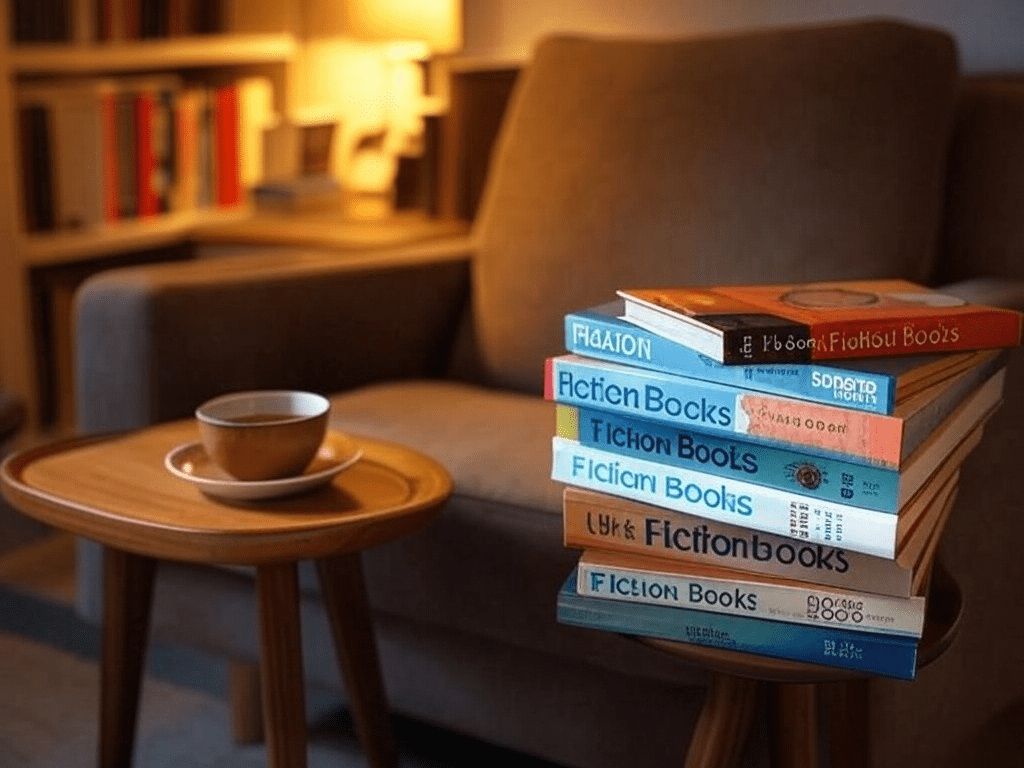Introduction:
If you’ve ever wondered how to read more books, you’re not alone. In today’s fast-paced world, finding the time and energy to read consistently can be challenging. However, reading provides numerous benefits, including expanding your knowledge, enhancing creativity, and improving mental well-being. This guide offers practical tips and tricks to help you read more books, whether you’re a beginner or an avid reader looking to boost your reading habits. Whether you’re asking yourself how can I read more, how to read books more effectively, or how to read books more faster, the following strategies will empower you to achieve your reading goals.

How Can I Read More?
The first step in learning how to read more books is setting clear and achievable reading goals. Having a defined target will keep you motivated and help you stay on track. Start by setting small, manageable goals, such as reading for 10-15 minutes a day, and gradually increase your reading time as you develop the habit. Establishing clear goals creates a sense of purpose and direction, making it easier to stay committed to your reading routine. Whether your goal is reading a certain number of books each month or simply reading a chapter a day, setting targets will turn your intention to read into a regular practice.
Set a Reading Schedule:
One of the most effective ways to read more books is to incorporate reading into your daily routine. This could mean setting aside specific times each day, such as reading during your morning coffee, right before bed, or during lunch breaks. Building reading into your schedule ensures that it becomes part of your everyday life, helping you maintain consistency in your reading habits. With a set time for reading, you’re less likely to forget or feel like there’s no time for it.
Track Your Progress:
Tracking your reading progress is a great way to stay motivated. Use a journal, app, or digital tool to log the books you’ve read. Tracking your books provides a visual reminder of your accomplishments and encourages you to keep going. Seeing your reading list grow over time can be highly motivating and can help you appreciate the effort you’re putting in. It also serves as a reference when you want to recall something you’ve read or reflect on your progress.
Limit Distractions:
In today’s digital age, distractions are everywhere, and it can be challenging to focus on reading. To read more books, it’s essential to create an environment that minimizes distractions. Try turning off your phone notifications, avoiding social media, and choosing a quiet space to read. When you reduce distractions, you can fully immerse yourself in your book, leading to more productive reading sessions. The quieter and more focused your environment, the more you’ll be able to concentrate and make reading a more enjoyable experience.
How to Read Books More Effectively
When you want to read books more effectively, the goal is not just to read faster but to improve comprehension and retention. These techniques allow you to absorb more information without sacrificing understanding, enhancing your overall reading experience.
Active Reading:
Instead of passively skimming through pages, engage actively with the text. Take notes, underline key points, or highlight important sections. Active reading helps reinforce the material, making it easier to recall important information later. By engaging with the text, you’ll also be able to think critically about the content, which will deepen your understanding and improve retention. Active reading transforms reading from a passive activity to a mental workout, helping you grasp complex ideas more easily.
Preview the Book:
Before you dive into the content of a book, take a few minutes to preview it. Skim through the table of contents, read the introduction, and glance at the conclusion. This overview gives you a roadmap of the book’s structure and helps you identify the key themes and ideas. With this preparation, you’ll be able to follow the author’s arguments more easily, making your reading experience more efficient. Previewing the book will help you understand the big picture before delving into the finer details.
Break It Down:
Don’t feel pressured to finish a book in one sitting. Instead, break the book into manageable sections. This can be by chapters, sections, or even page numbers. Setting small reading goals for each session makes the task feel less overwhelming and more achievable. By breaking it down, you can tackle the material at a comfortable pace, preventing burnout and keeping your mind fresh. If you aim for just a chapter a day, you’ll be surprised at how quickly you finish a book.
How to Read Books More Faster
If you’re aiming to read books more faster without sacrificing comprehension, you can practice techniques that increase your reading speed. While speed reading takes practice, these tips will help you improve your pace and efficiency.
Minimize Subvocalization:
Subvocalization is when you silently pronounce each word in your head as you read. While this helps with comprehension, it can slow down your reading speed. To read faster, try to minimize subvocalization by focusing on reading groups of words at once instead of processing each individual word. This technique encourages faster reading while still allowing you to grasp the meaning of the text.
Focus on the Meaning:
Rather than reading each word, focus on understanding the meaning behind phrases and ideas. Try to recognize the overall theme and important points of each section. Speed reading relies on comprehension of the larger concepts, not every single detail. By learning to pick up on context and key information quickly, you can speed up your reading without losing valuable insights from the text.
Use a Pointer or Finger:
Using a pointer, such as your finger or a pen, to guide your eyes along the text can help speed up your reading. This technique helps you maintain focus and discourages your eyes from wandering, allowing you to stay engaged with the material. As your eyes follow the pointer, you’ll naturally increase your pace, leading to faster reading while maintaining better concentration on the content.
Make Reading a Habit
Once you’ve mastered how to read more books and implemented strategies for reading effectively and faster, the next step is to make reading a consistent habit. Regular reading will help you consume more books over time and make reading a natural part of your life.
Join a Book Club or Reading Group:
Joining a book club or reading group is a great way to stay motivated and engaged with your reading. When you have others to discuss books with, it becomes more enjoyable and rewarding. You’ll also receive recommendations for books you might not have picked up otherwise. Sharing thoughts and opinions on a book with others makes reading a more social activity, which can lead to increased reading habits. Book clubs often set reading schedules, helping you stay accountable and ensuring that you read more consistently.
Mix Up Your Reading Genres:
Variety is key when it comes to building a reading habit. If you find yourself getting bored with a particular genre, switch things up! Read fiction, non-fiction, biographies, self-help, and more. A change in genres can reinvigorate your interest in reading and make it easier to stick with your reading goals. When you keep things fresh, you’ll be more excited to read and explore new perspectives, which will help you read more books in the long run.
Conclusion on How to Read More Books
By following these strategies on how to read more books, you’ll be well on your way to achieving your reading goals. Whether you want to read faster, more effectively, or more consistently, small changes in your reading habits can lead to big results. Remember to set realistic goals, make reading a part of your routine, and use the techniques provided above to enhance your reading experience. Reading not only enriches your life but also offers endless opportunities for personal growth and enjoyment.
How do you make time for reading? Share your favorite reading tips in the comments below! If you found this article helpful, don’t forget to share it with fellow book lovers!
You might be interested in reading 5 Best Ways to Get Paid For Reading Books as well.






